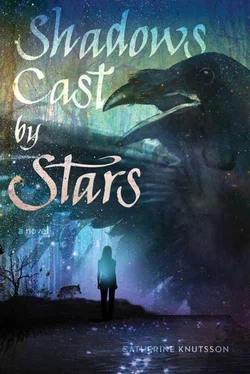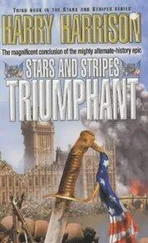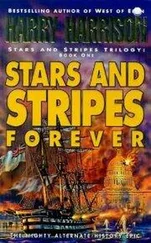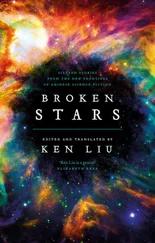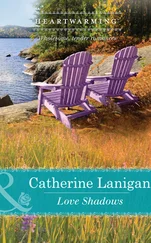The third is the Shu, in the heart of what once was British Columbia. Far to the north is the fourth, the Bix’iula. Some wonder if it still exists. No one has heard from the Bix’iula in years.
And then, there’s the Island.
My father moved to the Island when he was a child, after my grandmother left my grandfather. When my father went back to the farm in the Corridor, his brothers, my uncles, decided to stay on the Island. One day they disappeared. Just like that-gone, without any explanation from the Band. Once in a while, I think I can feel their totems following me, but when I look back, nothing’s there.
I sometimes wonder if the Island took them, for it is an angry land. Once, ages ago, a great tsunami swept its lower half into the sea. The Island has never forgiven the ocean for this, and eventually she’ll seek retribution.
Paul wakes as Madda guides the boat into an estuary. He’s always wanted to come here. “Told you it would be beautiful,” he says, as a heron, startled by the engines, takes to wing. “Told you.”
A wharf looms out of the morning mist. Boats flank it, rocking at our approach. The jangling of their rigging breaks the eerie silence.
Madda pilots the skiff into a berth as my father jumps onto the wharf, catching the mooring line as Paul throws it to him, and tows the skiff into place. “Start unloading,” he says to me once the skiff is moored. “I’ll be right back.” He jogs up the ramp and vanishes into the mist.
I climb over the gunwales to take a box from Madda. “I knew you a long time ago, when you were a little girl,” she says as she hands it to me.
Paul catches my eye as I bite my tongue. Meeting me as a child hardly constitutes knowing me, but I swallow those words. It’s been a long night, and we’re all a little owly.
Once everything’s unloaded, my father reappears and helps move it all up the ramp. There’s a truck waiting there. A white man is at the steering wheel, and beside him, a girl about my age, with long blond hair woven into braids. Neither of them gets out. They just watch us load our belongings into the back, making it clear that they think they’re better than us, and when I notice the scar on the girl’s arm, it’s all I can do not to give in to my anger. That scar tells me she lived in the Corridor once, so she knows what it’s like to lose your belongings, your home, your everything, and she doesn’t even have the decency to say hello?
When we finally have the truck loaded, we climb into the back with our boxes. Madda tells us she’ll see us in town, and heads back down to her boat. The man turns the key. The engine chugs a few times, and then coughs. He turns the key again, with the same results. Chug, chug, cough, nothing.
“Want me to take a look?” my father says.
“Nope. It does this sometimes,” the man replies, but it’s not long before they’ve got the hood up and they’re both bent over the engine.
I wander back toward the wharf, picking up an old piece of salt-crusted rope that someone’s tossed away as I go. The rope’s stiff, but with a little work, I unravel it into strands and start to knot it into a chain.
On the beach a short ways down, something catches my eye as I work-a blur of black against the thick, dark firs. I squint. It’s a raven. He’s tugging something from under a rock. He cackles and hops, dancing his awkward, funny jig, until he finally pulls his prize out. Then he rises in the air, a black arrow, and drops something small, something white, to its death. An oyster, I think.
“Paul,” I say. He’s talking to the girl, and looks annoyed that I’ve interrupted him, but strolls over anyhow, the girl sliding out of the truck to trail after him. “What?” he says.
“Look at that raven,” I say.
“Raven?” Paul tips his head to the side. “What raven?”
I look again. It’s not there. “It must have flown away,” I say quickly, though Paul narrows his eyes. He knows I’m lying, but to admit I’m seeing shades in front of this girl that neither of us knows is a bad idea. Strangers don’t always take kindly to someone who sees things that aren’t there, and there’s something about this girl, now that she’s close to me, that strikes me wrong.
But the girl didn’t hear my slip. Her attention is focused on the chain of knots in my hand. “What’s that?” she says.
“Oh.” I hold it up. “A necklace, maybe? I think it might be long enough.” I smile and hold it out to her. “If you like it you can have it when I’m done.”
She pulls a green stone on a leather thread out from under her shirt and dangles it for me to see. It’s beautiful, and she knows it. “I’ve already got one. I don’t need another,” she says. She tucks the stone back in place and strolls off to the truck.
My brother follows her, casting me a glance that says, Oh well .
My hand forms a fist around the knotwork, and when I’m sure no one is looking, I throw it as far as I can. It floats on the water for a brief moment before it starts to sink. Madda, who’s still down on the docks, notices and fishes it out. She tucks it into her pocket and then turns back to her work.
I ball my hands into fists. Why should I care if the girl didn’t want the necklace? But it wasn’t the refusal. It was the way she refused it that’s left me feeling hollow inside. She’s back in the truck now, the door open. Paul leans against it, smiling. I should be happy that he’s making a friend, but I’m not, though I’m not sure why. Maybe it’s that she didn’t help us. Maybe it’s the look in my brother’s eyes, the one that says he’s smitten. Maybe it’s the look in her eyes, the one that says she knows.
The engine finally roars to life. “All right, everyone back in,” my father says as he slams the hood down.
I cast one more look at the estuary. The ebbing tide has created ripples of green water that look like a humpbacked monster, and a seal floats away on the current.
But no raven. Maybe there never was.
I turn away and refuse to think about what that might mean.
O ur path takes us through the forest. Ancient firs reach toward the sky as if they want to claim the sun for themselves. This forest is a dark, still place. The only sound is the truck, rumbling and grinding its way along the road. The trees aren’t happy that we are disturbing their slumber, so I close my eyes and wish for them to rest, to sleep. We mean no harm , I say. We only want to pass through .
Whether the forest understands my silent request, I don’t know. I have no idea whether it does any good at all, but an offering, even one as meager as a thought, is something at least.
And then the forest gives way and the town appears.
The town had a name once, but names have little meaning anymore in this world where humanity is crammed into population corridors, where numbers designate quarantine grids, where people are divided into Others and non-Others. A main street runs east to west, disappearing into more old forest. Buildings flank the street. Some of them are derelict, with broken windows and sloughing paint. One, in better repair than the rest, has STORE painted in blue across its pediment. A dark-haired girl sits on its steps, weaving a basket. A little ways away, sunlight glints off the bell in an old church’s belfry. Scorch marks race up the church’s side, and boards over the windows prevent anyone from looking in or the church from looking out.
Standing at the top of the street, closest to the forest, is the longhouse. A green-and-red thunderbird rests on the apex of its roof, and flanking each corner is a watchman, gazing down on us with stern eyes. Their arms are not raised in welcome. No one may enter.
Читать дальше
